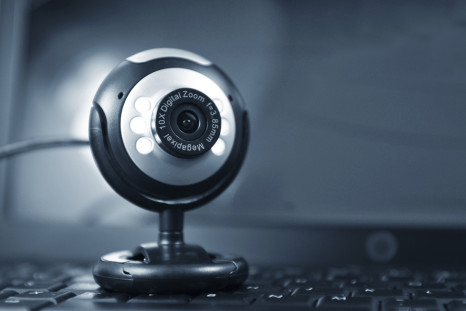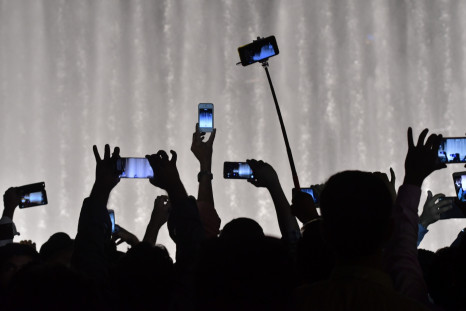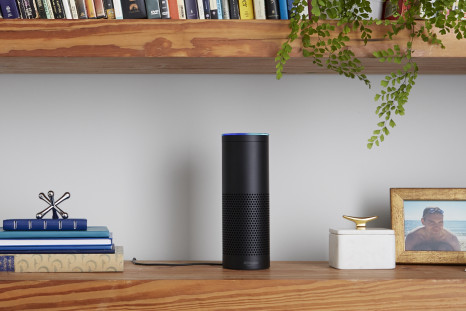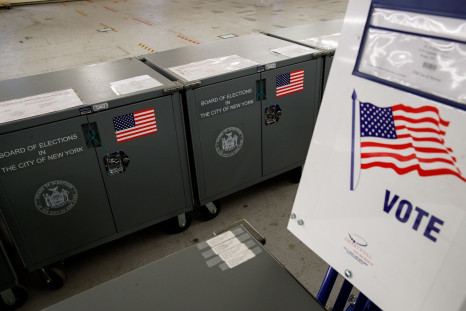More From Jason Murdock
Android malware that can 'steal everything' for sale on underground Russian forum
The 'Svpeng' malware was rebranded 'CryEye Android Banker', security firm found.
Aug 07, 2017
Will technology cause society to collapse in 30 years? This former Facebook exec says yes
Antonio Martinez was interviewed in a tepee after brandishing a machine gun.
Aug 07, 2017
Tor Network co-founder denies criminal activity enabled by anonymous browsing platform
Tor software is a force for good in the world, argues co-founder Roger Dingledine.
Aug 07, 2017
Game of Thrones unaired fourth episode leaks online in full following HBO hack
Yes, HBO was hit with a cyberattack but insiders stress this leak was unrelated.
Aug 04, 2017
Pro-Isis hackers exposed: Analysis reveals key members of 'radical' cybercrime group
The Russian cybersecurity firm released profiles of United Islamic Cyber Force hackers.
Aug 04, 2017
Dictionary.com hit with privacy complaints after Android app 'tracks user locations'
Welcome to 2017, when even dictionary applications may be an invasion of privacy.
Aug 04, 2017
What is Kronos? A brief history of the Trojan linked to WannaCry hero Marcus Hutchins
The arrest of MalwareTech caused a shockwave - so what exactly is accused of creating?
Aug 04, 2017
'WannaCry hero' Marcus Hutchins arrested over 'creation' of notorious banking malware
Marcus Hutchins - aka MalwareTech - was credited with stopping WannaCry.
Aug 03, 2017
FBI arrests Briton Marcus Hutchins credited with stopping WannaCry cyberattack
The 23-year-old was detained in Las Vegas following the Defcon hacking conference.
Aug 03, 2017
This new website tracks sneaky 'Russian influence operations' taking place on Twitter
Hey, Twitter account, are you a Russian spy?
Aug 03, 2017
New WikiLeaks files show how CIA uses 'Dumbo' tool to disrupt webcams, microphones
The release comes as part of 'Vault 7' and was branded 'dull' by one security expert.
Aug 03, 2017
Pwned Passwords: In 10 seconds, this new website could save you from being hacked
This new service contains 360 million pwned passwords that you should not be using.
Aug 03, 2017
HBO hackers stole 'thousands' of internal files, unaired Curb Your Enthusiasm episodes
Pretty, pretty, bad: Hackers may also have material from Game of Thones and Ballers.
Aug 03, 2017
iPhone cases recalled as leaking liquid leaves 'permanent scarring from chemical burn'
Liquid glitter iPhone cases injured at least 24 victims across the US, UK, Canada and Mexico.
Aug 02, 2017
Digital billboard in Cardiff hacked to show swastikas, memes and 'Sharia zone' warning
The billboard was reportedly hacked to read: 'Big Brother is Watching You!'
Aug 02, 2017
Illegal goods for sale on dark web markets see boost after death of AlphaBay and Hansa
Sales are down but listings have spiked: Is police action deterring dark web crime?
Aug 02, 2017
Smartphone screens are the new 'front lines of war', says UK home secretary Amber Rudd
Rudd pledged to "purge the internet of poisonous and pernicious material".
Aug 02, 2017
This Amazon Echo 'hack' can turn your friendly home assistant into a covert wiretap
The vulnerability allegedly affects versions of the Echo released in 2015 and 2016.
Aug 01, 2017
Your secret internet habits and full browsing history can easily be exposed, study finds
Clickstream data is traded and sold online - and could expose your darkest secrets.
Aug 01, 2017
Beware of new dangerous Android malware that is targeting UK bank customers
Svpeng malware targeting 14 UK banks after hitting 23 countries in a single week.
Aug 01, 2017
Why Amber Rudd's anti-WhatsApp encryption spiel is 'technologically illiterate rubbish'
Experts warn Amber Rudd's anti-encryption proposals would put UK citizens at risk.
Aug 01, 2017
Game of Thrones secrets leaked? HBO confirms 'disturbing' cyberattack on network
CEO Richard Plepler said there had been a 'cyber incident directed at the company.'
Jul 31, 2017
WikiLeaks dumps 71,800 hacked emails linked to French president Emmanuel Macron
Hackers probably weren't Russia though, WikiLeaks said.
Jul 31, 2017
Hackers break into US election machines in 90 minutes to show flaws in electronic voting
Election hacking? It may be easier than you think.
Jul 31, 2017
Has Mandiant been hacked? Cybercriminals leak files and claim 'client data' hijacked
'Leak The Analysts' aims to 'trash the reputation' of legitimate cybersecurity researchers.
Jul 31, 2017
Edward Snowden: Russian crackdown on web freedom is 'violation of human rights'
Biting the hand that feeds? Former NSA man slams Russia's internet crackdown.
Jul 31, 2017
British hacker-for-hire convicted in Germany for role in Deutsche Telekom cyberattack
The 29-year-old computer hacker was arrested by British authorities in February 2017.
Jul 28, 2017
New version of 'Trickbot' malware adds worm capabilities that may have 'global impact'
Flashpoint experts warn the banking Trojan may soon mimic WannaCry and NotPetya.
Jul 28, 2017
Dark web marketplace allegedly selling access to 'power plants, hospitals and airlines'
CMarket is reportedly a hacker-for-hire platform which also sells access to networks.
Jul 28, 2017
Inside a digital honey pot: How state hackers pose as hot women to steal secrets
On LinkedIn, 'Mia Ash' was a photographer. In reality, it was a honey-pot ruse from Iran.
Jul 28, 2017
Pages
- PREV
- 12
- 13
- 14
- 15
- 16
- 17
- 18
- 19
- 20
- NEXT


































